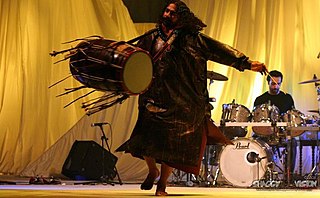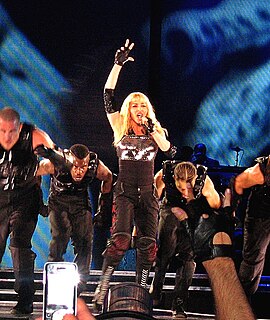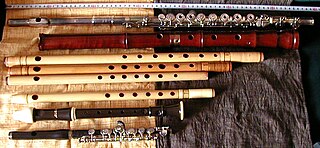Sufi rock/ Sufi folk rock is a subgenre of rock music that combines rock with classical Islamic sufi music traditions. It emerged in the early 1990s and became widely popular in the late 1990s in India, Pakistan and Turkey. The term "sufi rock" was coined in 1993 by writer Nadeem F. Paracha to define the Pakistani band Junoon, who pioneered the process of fusing conventional rock music with folk sufi music and imagery.

Suno Ke Main Hun Jawan was the debut album of the Pakistani pop/rock band Noori. The album was released on 25 October 2003 and was a commercial success. Singles from this album were "Suno Ke Main Hu Jawan", "Tum Hans Diyay", "Gana No. 1", "Dil Ki Qasam", "Neend Ayay Na", "Manwa Re" and "Jana Tha Hum Ne".
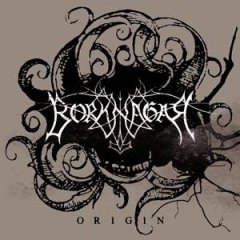
Origin is the seventh studio album by Norwegian metal band Borknagar. Origin explores the band's more progressive and traditional elements and is primarily an acoustic effort.

Entity Paradigm is an alternative metal band from Lahore, Punjab, Pakistan, formed in 2000. The band was founded by songwriter and guitarist Zulfiqar J. Khan, vocalist, songwriter Fawad Khan and keyboardist and vocalist Ahmed Ali Butt who were soon joined by Salman Albert on guitars, Abid Khan on drums, Hassaan Khalid on rhythm guitars and Waqar Ahmed on drums, since then there had been many changes in the line-up the only consistent members being Ahmed Ali Butt, Salman Albert and Hassaan Khalid. Their music is categorized as being associated with both progressive metal and progressive rock, yet having been heavily influenced by nu metal and psychedelic rock music.

Boondh is the second album by the Pakistani pop/rock band Jal, released on 14 December 2007, three years after the release of Aadat. The first single from the album "Sajni", was a major hit all over Pakistan, topping all of the charts in the country, just after a month of its release.

Mekaal Hasan Band, sometimes shortened to MHB, is an international sufi rock band formed in Lahore, Pakistan in 2000 by composer, singer-songwriter and guitarist Meekal Hasan.
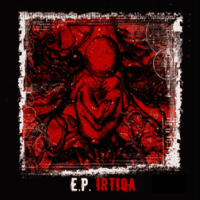
Irtiqa is the debut album by the Pakistani rock band, Entity Paradigm. It was originally slated for a 25 September 2003 release date, but was delayed to 1 October. Entity Paradigm released singles from Irtiqa which were "Hamesha," "Hamein Aazma", "Kahan Hai Tu", "Aghosh", "Waqt" and "Irtiqa III"; the videos for "Waqt" and "Irtiqa III" were directed by Xulfi himself.
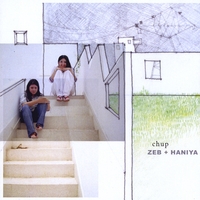
Chup! is the debut album by the Pakistani female pop duo Zeb and Haniya, released in July 2008. The only single from this album is "Aitebar".
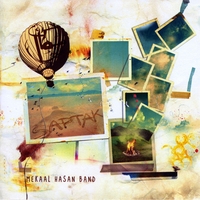
Saptak is the second studio album by the Pakistani rock band, Mekaal Hasan Band, released in October 2009. The album also contained the hit track "Chal Bulleya", and new versions of a couple of songs from the previous MHB album Sampooran.
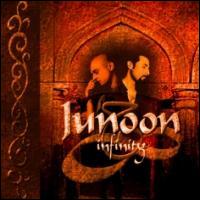
Infiniti is the debut album of the singer-songwriter/multi-instrumentalist Salman Ahmad. The album was released on July 1, 2005 under the record label EMI. Singles from the album include "Ghoom Taana" and "Al-Vida". The single "Ghoom Taana" also featured in Junoon's seventh studio album Dewaar. Although, the album was released as a solo album of Salman Ahmad but it was slated to be Junoon's eighth studio album.
Ajj Aakhaan Waris Shah Nu is a famous dirge by the renowned Punjabi writer and poet Amrita Pritam (1919-2005) about the horrors of the partition of the Punjab during the 1947 Partition of India. The poem is addressed to the historic Punjabi poet Waris Shah, who had written the most popular version of the Punjabi love tragedy, Heer Ranjha. It appeals to Waris Shah to arise from his grave, record the Punjab's tragedy and turn over a new page in Punjab's history.
"Heer" is an instrumental song by the Pakistani sufi rock band Junoon. The instrumental was first released on the band's self-titled debut album, Junoon released in 1991 and later in the fourth studio album, Azadi released in 1997. The instrumental is composed by the band's lead guitarist Salman Ahmad. The instrumental uses blending of rock guitars and bluesy vocals with eastern elements like the use of tablas, raga-inspired melodies and traditional Pakistani folk music.
"Bulleya" is a song by the Pakistani sufi rock band Junoon, released in 1999. It is the first track from the band's fifth album, Parvaaz (1999), recorded at Abbey Road Studios, London and released on EMI Records. The song is a famous kafi written by the sufi saint Bulleh Shah. Bulleh Shah is famous for his spiritual and metaphysical poetry, and Bullah Ki Jaana is one of his well-known poems. The song is composed and produced by lead guitarist and founder of the band Salman Ahmad. It is the lead single on the album, the song uses blending of rock guitars and bluesy vocals with eastern elements like the use of tablas, raga-inspired melodies and traditional Pakistani folk music.

In the Key of Disney is the ninth studio album by Brian Wilson, released on October 25, 2011, by Walt Disney Records as part of the Disney Pearl Series. The album is the second release by Disney for Wilson, after Brian Wilson Reimagines Gershwin. Disney calls it "the album that marries the vision of two men who shaped the image of modern California – Brian Wilson & Walt Disney."

Warmer Communications is the sixth studio album released by Average White Band. The title is a play on Warner Communications, parent company of AWB's Atlantic Records label at the time of the album's release.

Irreplaceable is a studio album by American musician George Benson. The album, released by GRP Records in 2003, was recorded in contemporary R&B style. However, four songs were re-recorded in a more smooth jazz style and released in 2004, together with three new songs, and leaving out three songs from the original 2003 edition.
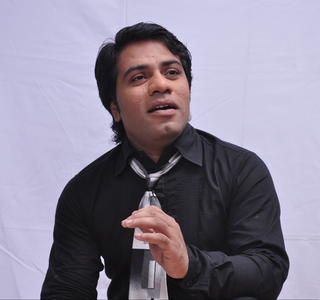
Javed Bashir is a Pakistani playback singer who is known as master of Hindustani classical music. Javed has sung songs for many Bollywood movies including Cocktail, Kahaani, Rush, Bombay Talkies, Bhaag Milkha Bhaag and Once Upon A Time in Mumbai Dobaara!.
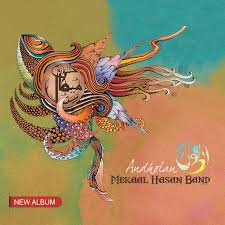
Andholan is the third album by the Indo-Pak band, Mekaal Hasan Band, after Sampooran (2004) and Saptak (2009). This album was released in 2014, by Times Music.
"Chal Bulleya" is a single by the Pakistani band Mekaal Hasan Band from their album Saptak. Javed Bashir was on the vocals. Lyrics were taken from the verses written by Bulleh Shah and Kabir.

Alaipayuthey is the soundtrack album, composed by A. R. Rahman, to the 2000 Indian Tamil film of the same name. The soundtrack album consists of nine tracks in original Tamil and Hindi versions of the albums whereas the Telugu version of the album has seven tracks. The soundtrack of Alaipayuthey was unanimously hailed as a Mani Ratnam film soundtrack turning for rhythmic fusion using modern synthesizers. A film, initially planned with film score, the recording of the songs eventually took place. The original and Hindi version of the soundtrack garnered positive critical reception.



